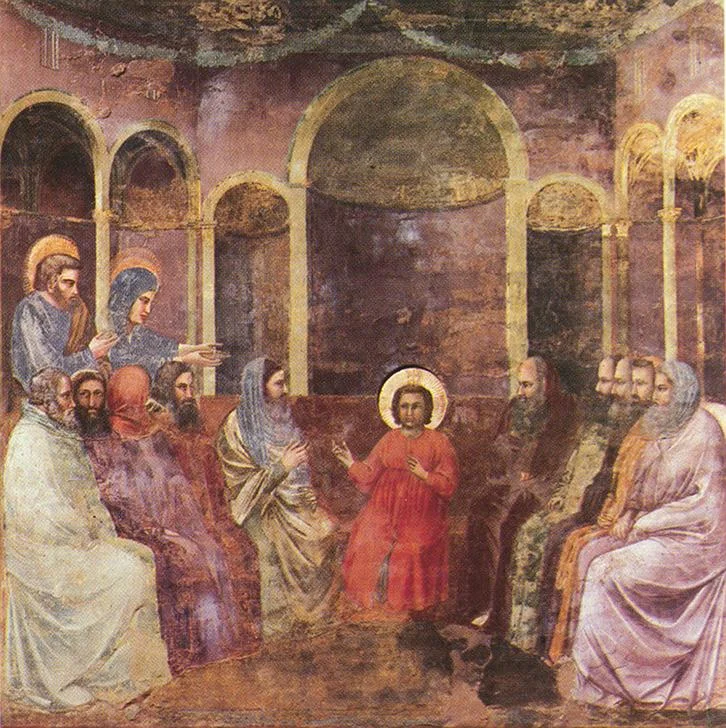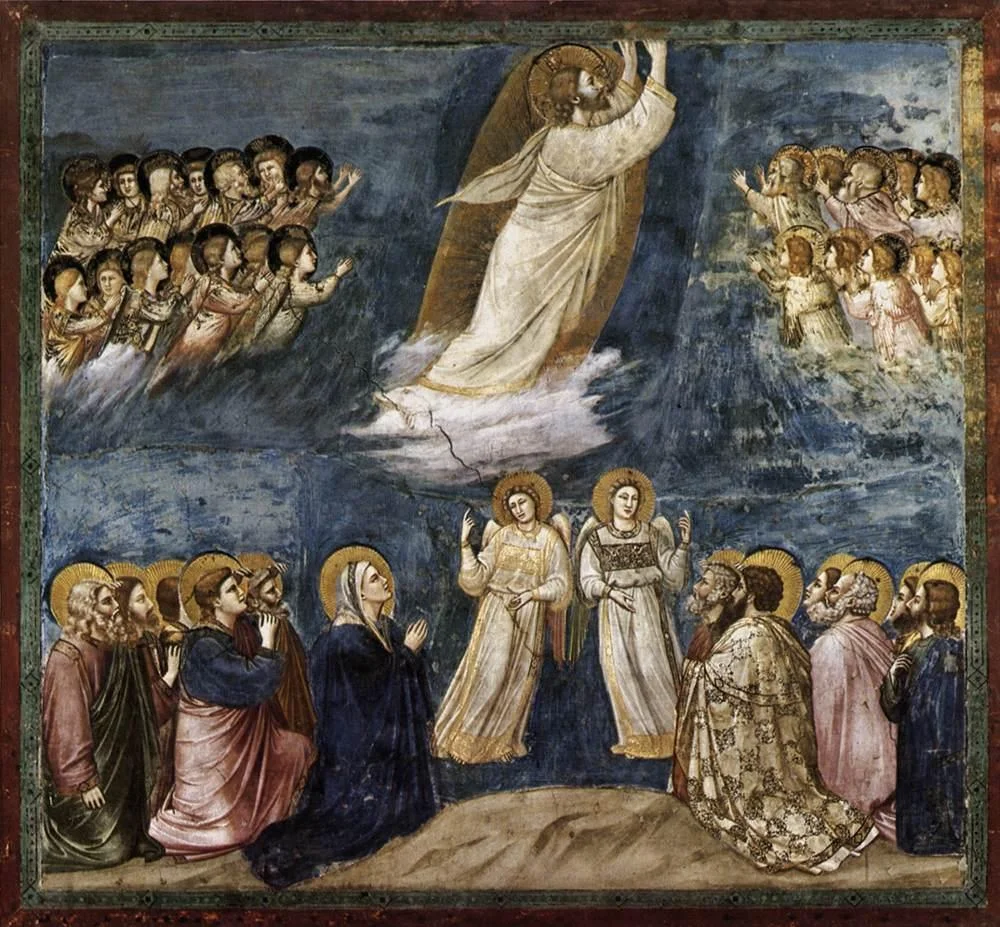Christianity: The Basics
For the past few years, St Mary Magdalen's has run a catechesis course—Christianity: The Basics—designed primarily for adults who want to know "what Christians believe".
The course involved a series of homilies followed by facilitated group discussion. The School of Theology has now compiled ten of these homilies together for wider use, and included some suggested discussion questions. We hope that they will be good starting points for fruitful conversations about the Christian faith.
Christianity: The Basics is intended for use in groups and is aimed as non-Christians and Christians alike: it is appropriate for enquirer's courses and pre-baptismal or pre-confirmation catechesis courses. Participants should read the homilies individually before gathering together to discuss any issues that arise, using the suggested questions as a guide.
01 JESUS
Christianity is about Jesus. But who is this Jesus? What do Christians believe about him? Why do we say we believe in him? These questions—which theologians and biblical scholars down the centuries have wrestled with under the rubric of christology—are central to Christian faith and life.
In this first session, we begin to ask the questions that have always preoccupied the Church, knowing that we will return again and again to Jesus, the centre and foundation of our faith.
The text for this session is available as a webpage or as a PDF (with suggested discussion questions).
02 THE HOLY SPIRIT
Christians of the "Latin West"—which includes Roman Catholics and Protestants—are often criticised by our Eastern Orthodox brethren for neglecting the doctrine of the Holy Spirit, or pneumatology. While the differences between West and East are often exaggerated, there are some signs—in our art as well as our liturgy—that they are not wrong on this point.
In this session, we reorient our thinking about the Holy Spirit by emphasising that our doctrine of the Holy Spirit is necessarily our doctrine of God. What does it look like to think about God via thinking about God's Spirit?
The text for this session is available as a webpage or as a PDF (with suggested discussion questions).
03 GOD AND CREATION
Most people are savvy enough to—at least—try to avoid thinking of God as an old man in the sky, despite centuries of Christian art testifying to the contrary. But old habits die hard, and this is especially evident in the way we think about God's work in creation.
We think of God as a potter or painter, which is fine as far as it goes, but taken too far, leads to problems concerning the natural sciences and human freedom. In this session, we return to what Christians have in common with Jews and Muslims, in considering the doctrine of creation.
The text for this session is available as a webpage or as a PDF (with suggested discussion questions).
04 THE TRINITY
The doctrine of the Trinity has a bad reputation: it is widely believed to be spectacularly incomprehensible. This is quite wrong, not least because everything about God is a deep mystery: as the Athanasian Creed puts it "The Father incomprehensible, the Son incomprehensible, and the Holy Spirit incomprehensible."
The doctrine of the Trinity is not an intellectual puzzle to solve, but an invitation to a life of love. In this session, we think about why Christians insist that this is who God is: love outpoured eternally.
The text for this session is available as a webpage or as a PDF (with suggested discussion questions).
05 THE INCARNATION, PT 1: GOD SPEAKS
Most prominently in the beginning of John's Gospel, Jesus is described as "the Word of God", which has provided rich material for theological reflection ever since. The Incarnation is God speaking to us, not in words and sentences, but in flesh and blood. God gives us to knowledge, not merely of facts, but of the Son, who provides a way to the Father.
In this session, we reflect on the "basic" Christian affirmations about Jesus, that he is the Son of God incarnate for the sake of the world.
The text for this session is available as a webpage or as a PDF (with suggested discussion questions).
06 THE INCARNATION, PT 2: HUMANITY'S WAY TO GOD
It is easy to focus entirely on the Incarnation as a one way street, from Heaven toEarth: God the Son descends to us, lives with us, and dies for us. But the Incarnation is a radical transformation of creation, and God and humanity are joined together in the single person of Jesus.
In this session, we ponder the mystery of Christ's bringing us—in his humanity—into the life of God.
The text for this session is available as a webpage or as a PDF (with suggested discussion questions).
07 HOLY SCRIPTURE
It is a truism that readers of the Bible disagree over its interpretation. Not only that, but Christians disagree about the nature of the Bible: was it dictated by God? is it historically accurate? is it just an outdated but charming old book?
In this session, we consider ways to affirm the authority of Scripture for the Church, and by extension for individual Christians.
The text for this session is available as a webpage or as a PDF (with suggested discussion questions).
08 WORSHIP
More than just a particular type of religious activity, worship is the whole of our response to God who makes and redeems us. Nevertheless, as a matter of convention, we are accustomed to speaking about "worship" in relation to prayers and songs, kneeling and bowing. But what should our acts of worship be like if worship is really about our entire Christian lives? And what does our common worship—the shared acts of the Church—say about what the Christian life should look like?
The text for this session is available as a webpage or as a PDF (with suggested discussion questions).
09 BAPTISM
Jesus left no writings, but he did form a people, giving them—us—two signs to perform. He asked us to "do this in remembrance of me" during the Last Supper, which we will look at in the next session. He also commissioned us to "make disciples of all nations, baptizing them in the name of the Father and of the Son and of the Holy Spirit".
Baptism is what anthropologists might consider a cleansing ritual; the clue in the use of water. But the Church has also always spoken of baptism in terms of death and resurrection. This session attends to this use of language about baptism.
The text for this session is available as a webpage or as a PDF (with suggested discussion questions).
10 EUCHARIST
The mass; holy communion; the Lord's supper. The eucharist is a sacrifice. The eucharist is a meal. The eucharist is a sign. The eucharist is a mystery that nourishes us for God's mission and ministry in the world.
In this final session, we think and talk about Christianity's central act of worship, the breaking of bread and sharing of wine, during which the Church is constituted and Christ is revealed to those who partake.
The text for this session is available as a webpage or as a PDF (with suggested discussion questions).









